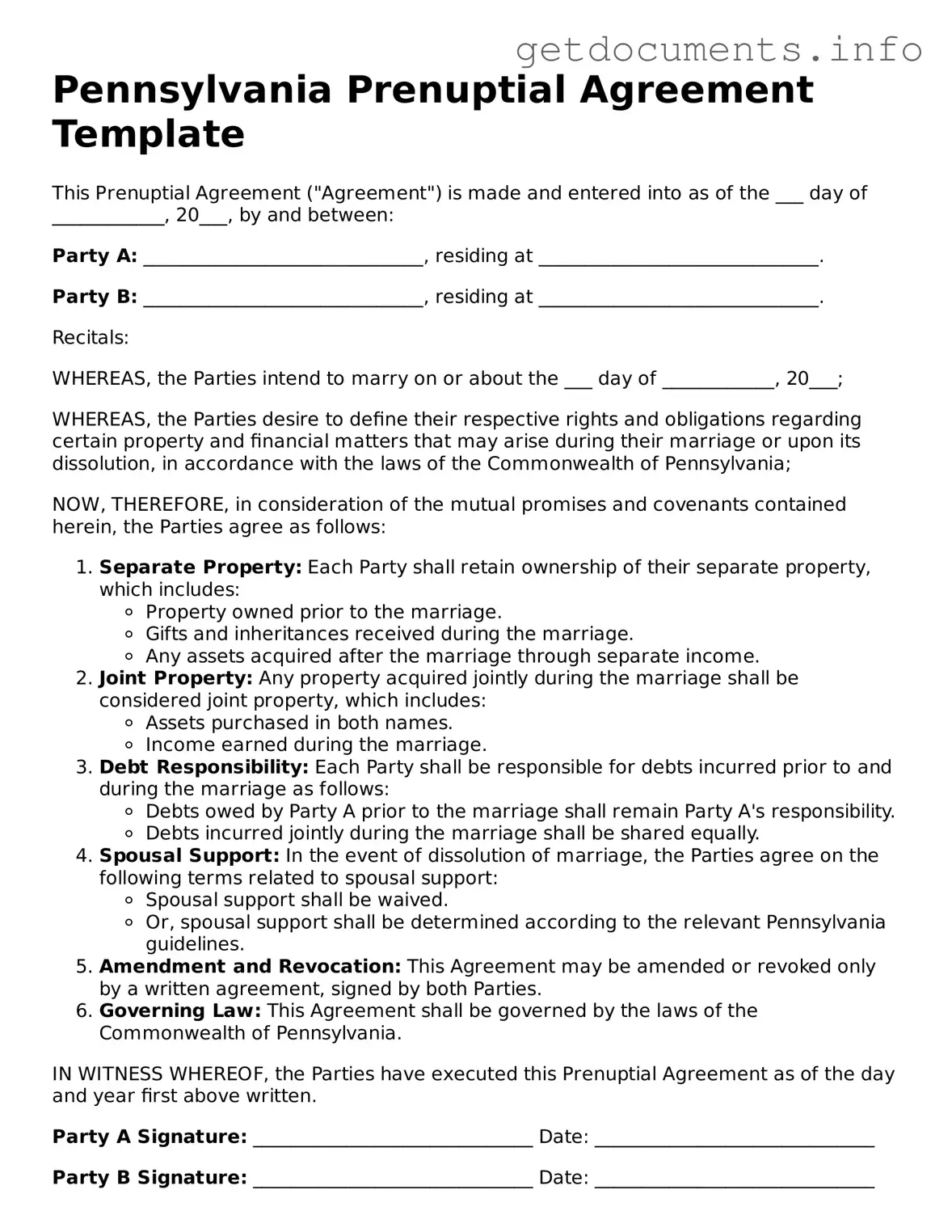Free Prenuptial Agreement Template for Pennsylvania
A Pennsylvania Prenuptial Agreement form is a legal document that outlines the financial and property rights of each spouse in the event of divorce or separation. This agreement helps couples clarify their financial expectations and protect their assets before tying the knot. To get started on securing your future, fill out the form by clicking the button below.
Access Prenuptial Agreement Editor

Free Prenuptial Agreement Template for Pennsylvania
Access Prenuptial Agreement Editor
Got places to be? Complete the form fast
Fill out Prenuptial Agreement online and avoid printing or scanning.
Access Prenuptial Agreement Editor
or
⇩ PDF File
